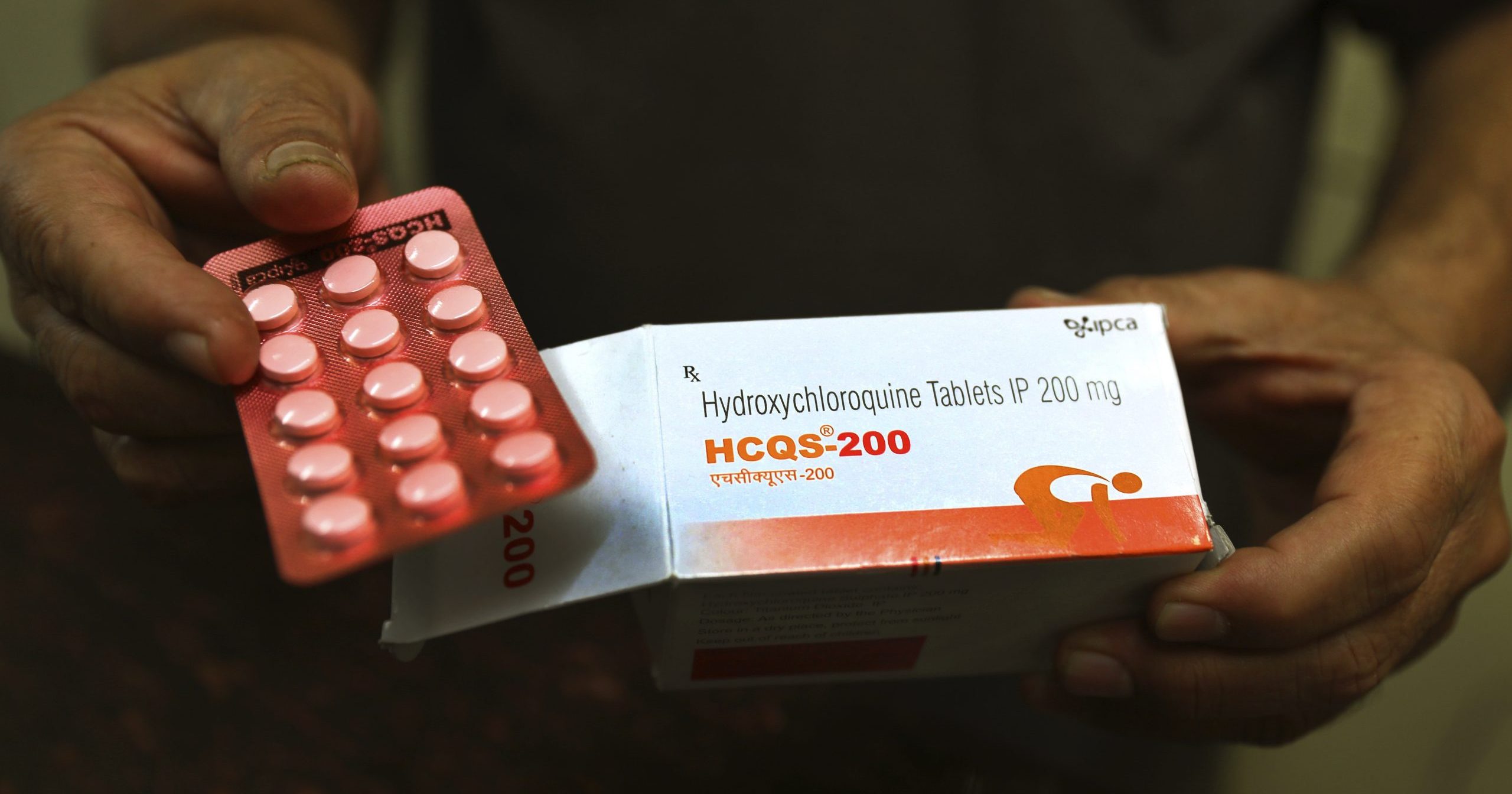
FDA Announces Hydroxycloroquine Decision
U.S. regulators on Monday revoked emergency authorization for antimalarial drugs promoted by President Donald Trump for treating COVID-19.
The Food and Drug Administration said the drugs hydroxychloroquine and chloroquine are unlikely to be effective in treating the coronavirus.
Citing reports of heart complications, the FDA said in a news release that the drugs’ unproven benefits “do not outweigh the known and potential risks.”
“While additional clinical trials continue to evaluate the potential benefit of these drugs in treating or preventing COVID-19, we determined the emergency use authorization was no longer appropriate,” Dr. Patrizia Cavazzoni, acting director of the FDA’s Center for Drug Evaluation, said in a statement. “This action was taken following a rigorous assessment by scientists in our Center for Drug Evaluation and Research.
“We remain committed to using every tool at our disposal in collaboration with innovators and researchers to provide sick patients timely access to appropriate new therapies. Our decisions will always be based on objective and rigorous evaluation of the scientific data. This will never change.”
The decades-old drugs, also prescribed for lupus and rheumatoid arthritis, can cause heart rhythm problems, severely low blood pressure and muscle or nerve damage.
The move means that shipments of the drugs obtained by the federal government will no longer be distributed to state and local health authorities for use against the coronavirus.
The drugs are still available for alternate uses, so U.S. doctors could still prescribe them for COVID-19.
“Of note, FDA approved products may be prescribed by physicians for off-label uses if they determine it is appropriate for treating their patients, including during COVID,” the FDA news release said.
Many Americans have shared stories of hydroxychloroquine’s effectiveness against the coronavirus.
Democratic Michigan state Rep. Karen Whitsett is among them.
“For me, it saved my life,” Whitsett said in April. “I only can go by what it is that I have gone through and what my story is, and I can’t speak for anyone else.”
Carlos Gavidia had a similar experience. The Jupiter, Florida, resident credited hydroxychloroquine, along with the antibiotic azithromycin, with his recovery from COVID-19, and he thanked the president for touting the treatment.
Others, however, have dismissed such anecdotal evidence.
Dr. Steven Nissen, a Cleveland Clinic researcher who has been a frequent FDA adviser, agreed with the agency’s decision and said he would not have granted emergency access in the first place.
“There has never been any high-quality evidence suggesting that hydroxychloroquine is effective” for treating or preventing coronavirus infection, he said, but there is evidence of serious side effects.
On Thursday, a National Institutes of Health panel of experts revised its recommendations to specifically recommend against the drug’s use except in formal studies, and “that, I’m sure, had influence on the FDA,” Nissen said.
Trump promoted hydroxychloroquine as a possible coronavirus treatment in the early weeks of the outbreak and revealed last month that he was taking the drug pre-emptively against infection.
No large, rigorous studies have found the antimalarial drugs safe or effective for preventing or treating COVID-19, and some recent studies indicate they could do more harm than good.
The FDA granted emergency use of the drugs for coronavirus patients in late March at the same time the U.S. government accepted 30 million doses of hydroxychloroquine and chloroquine that had been donated by two foreign drug manufacturers. Millions of those doses were shipped to U.S. hospitals to treat patients who weren’t enrolled in clinical trials.
The agency said Monday it revoked the authorization in consultation with the Biomedical Advanced Research and Development Authority, or BARDA, which had requested the emergency use.
The Western Journal has reviewed this Associated Press story and may have altered it prior to publication to ensure that it meets our editorial standards.
Truth and Accuracy
We are committed to truth and accuracy in all of our journalism. Read our editorial standards.
Advertise with The Western Journal and reach millions of highly engaged readers, while supporting our work. Advertise Today.












